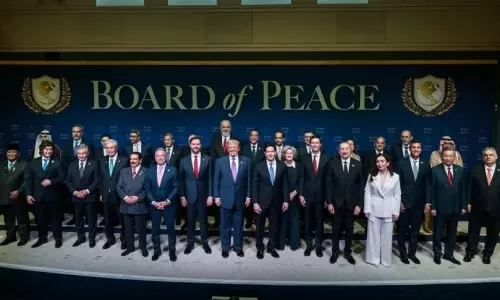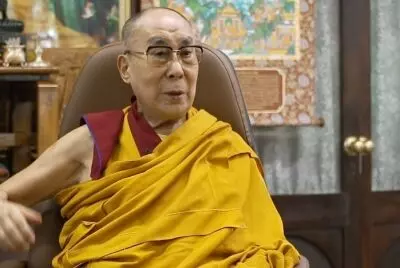
Dalai Lama's top advisers selected as 'people of interest' by NSO's spyware list
text_fieldsNew Delhi:The phone numbers of a top ring of advisers around the Dalai Lama are believed to have been selected as those of 'people of interest' by the government clients of Israeli surveillance company NSO Group.
Other phone numbers apparently selected by Delhi were those of the former President of the Tibetan government-in-exile, Lobsang Sangay, the staff in the office of another Buddhist spiritual leader, the Gyalwang Karmapa, and several other activists and clerics who are part of the exiled community in India, the report said.
Traces of Pegasus were found on 37 of the 67 phones in the data that were analysed by Amnesty International's security lab.
Of the 48 iPhones examined that had not been reset or replaced since they appeared in the records, 33 carried traces of Pegasus or signs of attempted infection. iPhones log the information that can reveal infection by the spyware, the report said.
The data may provide a glimpse at the delicate relationship between Tibetan exiles and the Indian government, which has provided refuge for the movement since its leaders fled a Chinese crackdown in 1959, while also viewing it as leverage -- and sometimes a liability -- in its own relationship with Beijing, The Guardian reported.
It also highlights the growing urgency of the question of who will follow the current Dalai Lama, 86, a globally acclaimed figure whose death is likely to trigger a succession crisis that is already drawing in world powers. Last year the US made it a policy to impose sanctions against any government that interfered with the selection process, The Guardian said.
The report said the records suggest that Tibetan leaders were first selected in late 2017, in the period before and after former US President Barack Obama met the Dalai Lama privately on a foreign tour that also included earlier stops in China.
Following the launch of the Pegasus project, India's IT minister, Ashwini Vaishnaw, said the project's claims about Indian surveillance were an "attempt to malign Indian democracy and its well-established institutions".
"The presence of a number on the list does not amount to snooping ... there is no factual basis to suggest that use of the data somehow amounts to surveillance" he told the parliament.






















